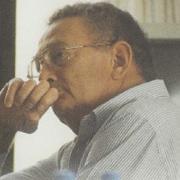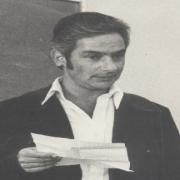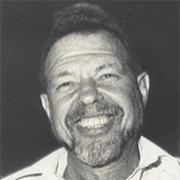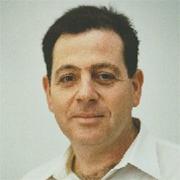In memoriam
 Professor Berglas played a crucial leadership role in developing the economic department at Tel Aviv University. He began this role in 1967, which was a critical year for achieving accreditation for the department’s B.A. program by the Higher Education Committee. Professor Berglas served the University as Chair of the Economics Department (1968-70 and part of 1978), as Dean of the Faculty of Social Sciences (1972-4) and as Vice Rector (1978-9). As one of Israel's leading economists, he participated in many public activities and served as a Director of the Budget in the Ministry of Finance. Later he was appointed as a Chairman of the Board of Directors of Bank Hapoalim. In late 1992, the Tel Aviv University Senate decided to expand the Department into a School of Economics, to be named in memory of Professor Eitan Berglas, who had passed away in the same year.
Professor Berglas played a crucial leadership role in developing the economic department at Tel Aviv University. He began this role in 1967, which was a critical year for achieving accreditation for the department’s B.A. program by the Higher Education Committee. Professor Berglas served the University as Chair of the Economics Department (1968-70 and part of 1978), as Dean of the Faculty of Social Sciences (1972-4) and as Vice Rector (1978-9). As one of Israel's leading economists, he participated in many public activities and served as a Director of the Budget in the Ministry of Finance. Later he was appointed as a Chairman of the Board of Directors of Bank Hapoalim. In late 1992, the Tel Aviv University Senate decided to expand the Department into a School of Economics, to be named in memory of Professor Eitan Berglas, who had passed away in the same year.
|
|
|
 Haim Lubin, born in Israel, volunteered to serve in the Fighting Jewish Brigade in the second world war. He fought in the War of Independence as the communication officer of the Yiftah Brigade.
Haim Lubin, born in Israel, volunteered to serve in the Fighting Jewish Brigade in the second world war. He fought in the War of Independence as the communication officer of the Yiftah Brigade.
After the War of Independence, he graduated in one of the first classes of the “Patinkin Boys” at the Hebrew University. He held several senior key positions in the Israeli economy, the last one being the chief economist of the Citrus Marketing Board. Haim Lubin was among the founders of the economics department at Tel-Aviv University.Haim and his younger colleague, David Pines, were the “watch dogs” who did not allow any compromise on academic quality during the first year of the department’s inception.He was regarded as a great teacher by the students and his courses were highly demanded. For years, he taught the first-year undergraduate course, “Introduction to Economics”. Many of his students turned later to be senior members of the department.

Elisha A. Pazner was born on April 16, 1941, in Geneva, Switzerland, and died on March 28, 1979, in Jerusalem. He arrived in Israel in 1953, but left soon after for Argentina because of his father's foreign service position. His compulsory service in the Israel Defense Force extended from May 1960 until October 1962. Elisha begun his study of economics at the Hebrew University of Jerusalem (B.A. 1966) and did graduate work at Harvard University (M.A. 1969, Ph.D. 1971). He was a member of the Department of Economics at Tel-Aviv University from October 1971 until his sudden death. During this time he spent over two years as a visitor at Northwestern University, Evanston, Illinois.

The guiding principle of Gideon's professional career was the recognition that economics is intended, and capable of helping the individual and of society. His research deals with a variety of applied topics: labor supply and inequality in the distribution of income, demand for oil by industry and by households, adoption of new technology in agriculture, utilization and exploitation of natural resources, and the estimation of environmental damages and the means to diminish them. In these areas, he made pioneering contributions in estimating the economic parameters that are required for the conduct of economic policy. Among others, he estimated the marginal product and the production costs of water, the willingness to pay for environmental quality, elasticity of the demand for fuel, and the factors that influence the inequality in income distribution. Because he valued these topics, his interest in them was continual, and he returned to them again and again throughout his life.

 Oved Yosha was a prominent figure in Israel's community of economists, as well as a distinguished and highly regarded economist in academic circles in Europe and in the US.
Oved Yosha was a prominent figure in Israel's community of economists, as well as a distinguished and highly regarded economist in academic circles in Europe and in the US.